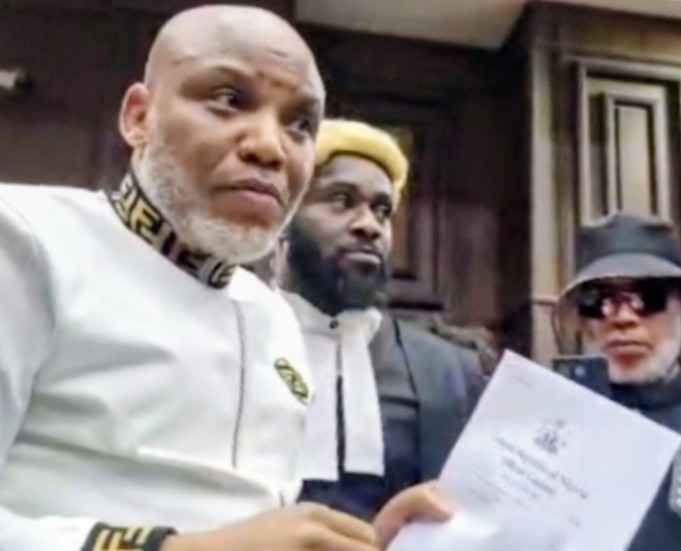Appeal Court Dismisses Nnamdi Kanu’s Rights Violation Case Against DSS
From Abdulkadir Yahaya, Abuja
The Court of Appeal in Abuja has dismissed an appeal filed by Nnamdi Kanu, leader of the Indigenous People of Biafra (IPOB) and convicted terrorism offender, regarding alleged violations of his fundamental rights while in the custody of the Department of State Services (DSS).
The court ruled that the appeal lacked merit and was rendered academic following Kanu’s November 20 conviction for terrorism by a Federal High Court.
A three-member panel of the appellate court determined that Kanu’s claims concerning breaches of his rights to human dignity, access to quality healthcare, and freedom of religion were no longer actionable after his life imprisonment sentence and subsequent detention.
In the lead judgment, Justice Boloukuromo Moses Ugo stated that the matter had become academic after Kanu’s lawyer, Maxwell Opara, confirmed at the outset that his client was being held at Sokoto Prison.
Justice Ugo also noted that the court could no longer consider Kanu’s request for transfer to Kuje Prison, which he had included in his appeal.
Furthermore, since Kanu had previously indicated a preference for prison custody, the court found no grounds to grant his prayers in light of his conviction and current incarceration.
The appeal challenged the July 3 ruling by Justice Taiwo Taiwo of the Federal High Court in Abuja, who dismissed Kanu’s fundamental rights enforcement suit due to insufficient evidence.
The respondents in the appeal were the Director-General of the DSS, the Department of State Services, and the Attorney-General of the Federation.
This judgment effectively concludes the legal challenge to Kanu’s detention conditions following his life sentence for terrorism offences.
Recall that on November 20, 2025, a Federal High Court in Abuja convicted Nnamdi Kanu on multiple terrorism-related charges.
Justice James Omotosho found Kanu guilty on two counts of engaging in acts of terrorism, noting that his repeated sit-at-home orders and threats of violence through broadcasts constituted terrorism under relevant laws.
The court also convicted Kanu on three additional counts for belonging to a proscribed organization and inciting followers to violence.
Evidence showed that Kanu remained a member of IPOB and its affiliate, the Eastern Security Network (ESN), despite their proscription. Broadcasts attributed to Kanu were shown to have encouraged attacks resulting in the deaths of security personnel and damage to public facilities, including police stations.
















